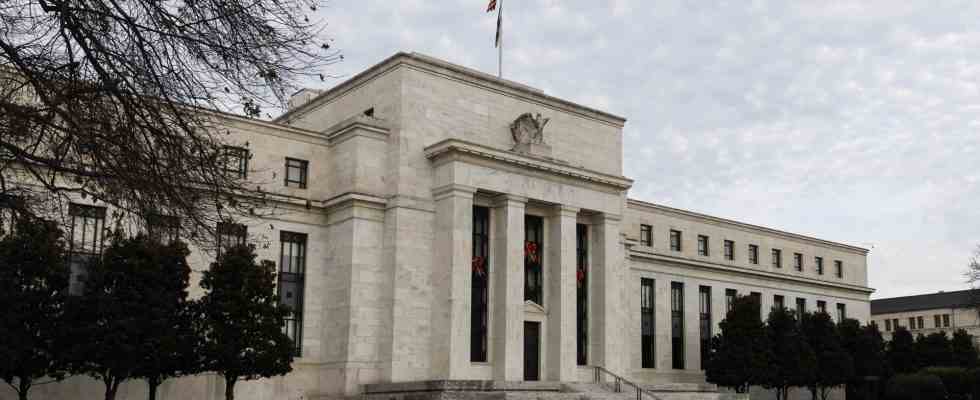Status: 03/14/2023 5:16 p.m
After the bank collapse in the US, the central banks are faced with a dilemma: further interest rate hikes could exacerbate the problems for banks – a pause in the hike, however, the problem of inflation.
The central banks actually want to fight inflation with further interest rate hikes. Against the background of the crisis surrounding the American Silicon Valley Bank, the Federal Reserve (Fed) is now in a quandary. Higher interest rates could exacerbate the crisis – a pause in rate hikes allowing inflation to ramp up. How will the central banks decide?
Rising interest rates are a problem for banks
These are the biggest bank failures in the US since the 2008 financial crisis. US authorities closed the Silicon Valley Bank on Friday. The result: a slump in bank stocks. Then on Sunday the news that the Signature Bank was also closed.
The bank failures appear to be related to losses on bond portfolios, which include mortgage-backed securities. These losses resulted from the rise in interest rates. This puts the central banks in a dilemma.
Are the ECB and FED pressing the brakes?
The European Central Bank (ECB) will decide on its interest rate on Thursday, and the Fed’s decision is due on March 22nd. The Institute for Macroeconomics and Business Cycle Research (IMK) is already expecting a more cautious interest rate policy from the ECB.
Many investors are hoping that the Fed may also lower interest rates as a result of recent events. “The impacts and collateral damage are increasing and should prompt the Fed to be more cautious,” said Robert Rethfeld, market expert at Wellenreiter-Invest.
Landesbank Hessen-Thüringen put the Fed’s dilemma in a nutshell: “Against the background of the banking crisis, it is advisable to exercise restraint when it comes to interest rates, but inflation is urging us to hurry.” This is a tightrope walk for the Fed – “and the events of the last few days show that the risk of missteps is very high”.
Interest rate cuts from summer?
Until last Thursday, investors were still counting on a rate hike of 0.5 percentage points at the next central bank meeting on March 22nd. This one is probably off the table. According to the CME Group’s Fed Watch Tool, 53 percent of market participants are currently expecting a small rate hike of 25 basis points.
47 percent expect the Fed not to raise interest rates at all. The peak of the rate hike cycle is now seen at 5.0 percent, recently investors had expected an increase to 5.5 percent. The first interest rate cuts will even be priced in from the summer.
Fresh inflation data could soothe the Fed
The inflation data published by the Fed on Tuesday should also be correct: In February, US consumer prices rose by 6.0 percent compared to the same month last year, as the Department of Labor announced on Tuesday in Washington. It is the lowest increase since September 2021, which is about a year and a half.
Most economists commented on the current development mostly positively. “The drop in inflation is good news for the Fed,” said Thomas Gitzel, chief economist at VP Bank. At the same time, the expert warned against adding fuel to the fire in the US banking market by accelerating interest rate hikes. Gitzel expects the Fed to raise interest rates by 0.25 percentage points. “After that it’s over.”
The Fed needs to weigh up
The inflation rate is still higher than the two percent target of the central banks. “In order to get the inflation problem under control, the US central banks have to raise their key interest rates even more significantly,” says Bastian Hepperle from the Hauck Aufhäuser Lampe Bank. The central banks are now faced with a choice: fighting inflation or financial market stability?
“How this estimate turns out cannot yet be judged with certainty. “However, a large interest rate step is probably off the table, and even a small one has become uncertain,” write the experts at Commerzbank.
Some economists recently accused the Fed of raising key interest rates too much in the past twelve months – and thus of having provoked the crisis surrounding the SVB.
With information from Emal Atif, tagesschau.de

